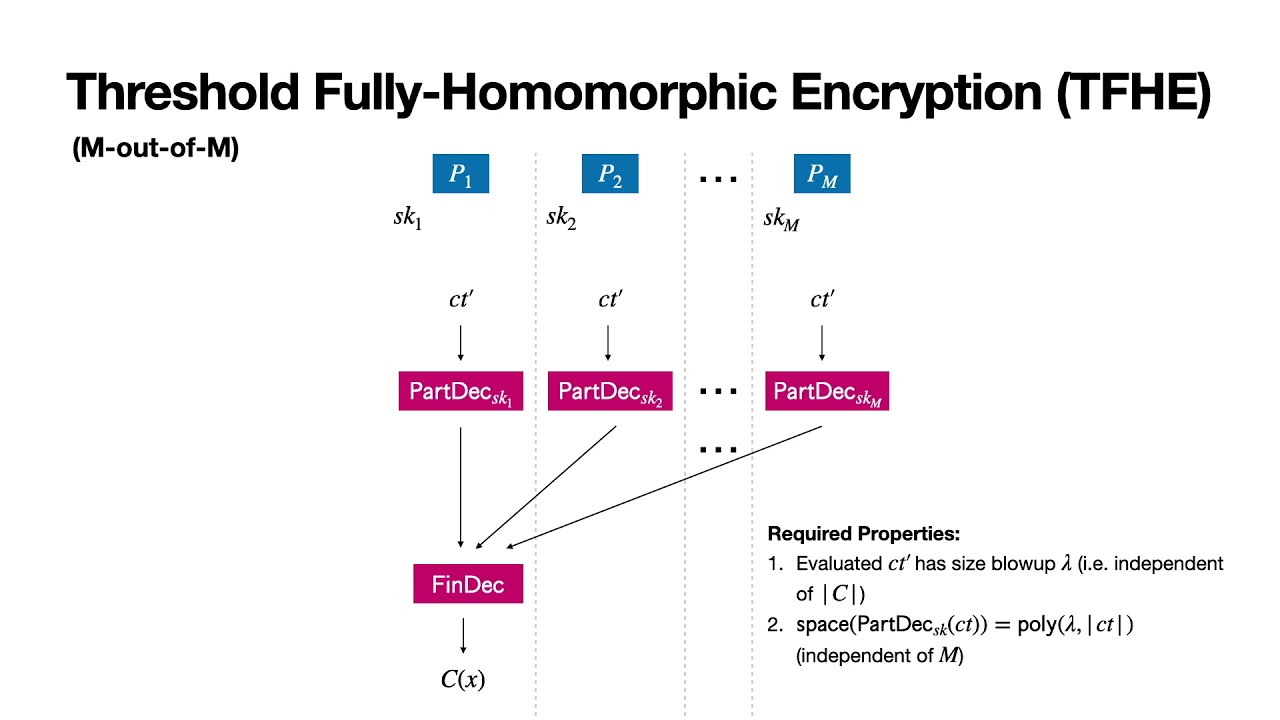Welcome to the resource topic for 2020/1157
Title:
Secure Massively Parallel Computation for Dishonest Majority
Authors: Rex Fernando, Ilan Komargodski, Yanyi Liu, Elaine Shi
Abstract:This work concerns secure protocols in the massively parallel computation (MPC) model, which is one of the most widely-accepted models for capturing the challenges of writing protocols for the types of parallel computing clusters which have become commonplace today (MapReduce, Hadoop, Spark, etc.). Recently, the work of Chan et al. (ITCS ‘20) initiated this study, giving a way to compile any MPC protocol into a secure one in the common random string model, achieving the standard secure multi-party computation definition of security with up to 1/3 of the parties being corrupt. We are interested in achieving security for much more than 1/3 corruptions. To that end, we give two compilers for MPC protocols, which assume a simple public-key infrastructure, and achieve semi-honest security for all-but-one corruptions. Our first compiler assumes hardness of the learning-with-errors (LWE) problem, and works for any MPC protocol with ``short’’ output—that is, where the output of the protocol can fit into the storage space of one machine, for instance protocols that output a trained machine learning model. Our second compiler works for any MPC protocol (even ones with a long output, such as sorting) but assumes, in addition to LWE, indistinguishability obfuscation and a circular secure variant of threshold FHE. Both protocols allow the attacker to choose corrupted parties based on the trusted setup, an improvement over Chan et al., whose protocol requires that the CRS is chosen independently of the attacker’s choices.
ePrint: https://eprint.iacr.org/2020/1157
Talk: https://www.youtube.com/watch?v=hufm3ero7kQ
See all topics related to this paper.
Feel free to post resources that are related to this paper below.
Example resources include: implementations, explanation materials, talks, slides, links to previous discussions on other websites.
For more information, see the rules for Resource Topics .
